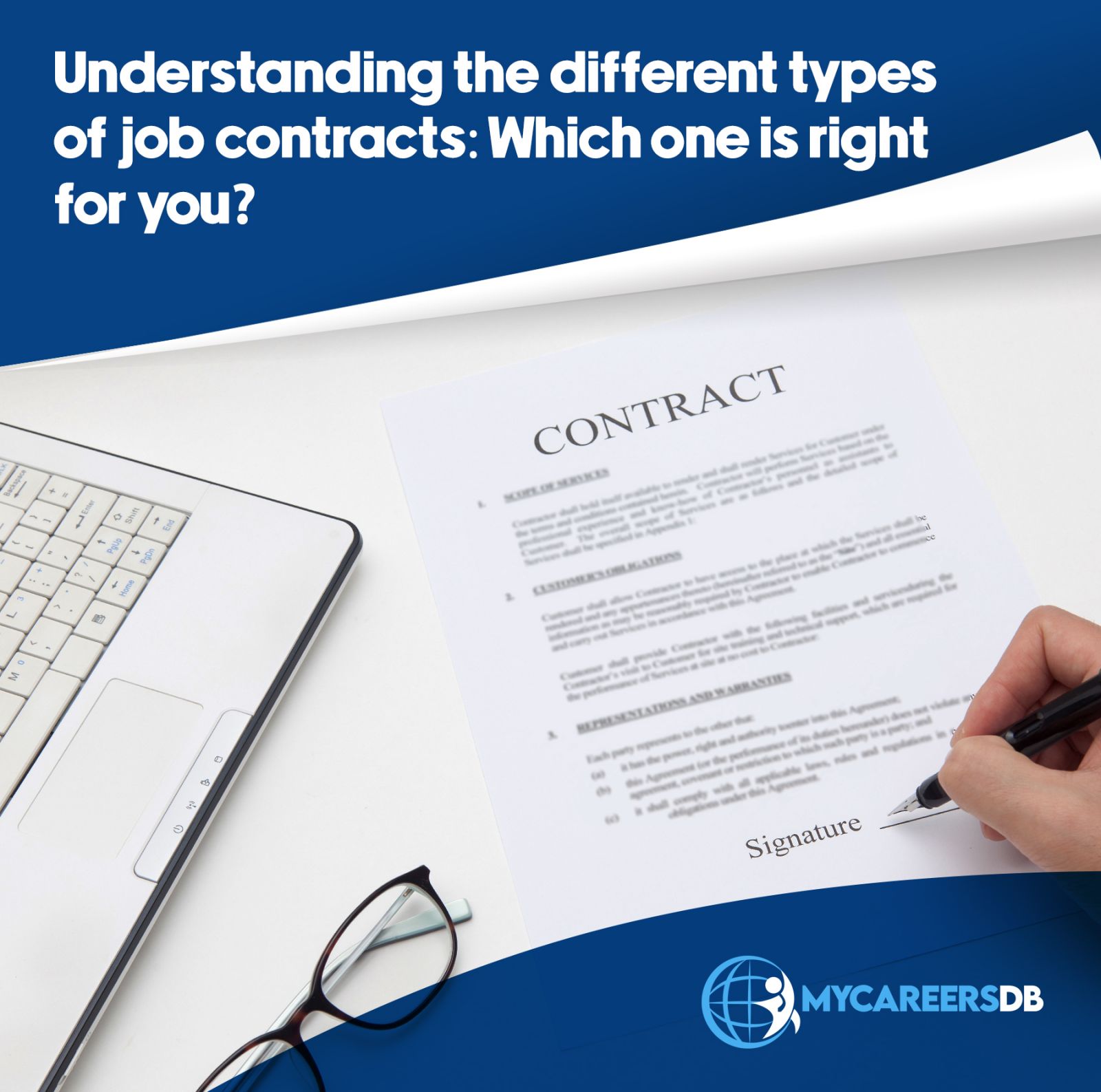When you're looking for a new job, one of the essential things to consider is the type of job contract you'll be offered. Job contracts outline the terms and conditions of your employment, including your job responsibilities, salary, benefits, and other important details. Different types of job contracts exist, and it's essential to understand each one so that you can choose the one that best suits your needs. In this blog post, we'll discuss the different types of job contracts and help you determine which one is right for you.
Permanent Contracts
A permanent job contract, also known as an open-ended contract, is an employment agreement that has no fixed end date. The employee is hired for an indefinite period and can work for the company as long as they want. The employer may still have the right to terminate the contract, but only under specific circumstances, such as gross misconduct or redundancy.
Permanent contracts offer job security, stability, and access to benefits such as sick pay, vacation pay, and a pension scheme. They're ideal for individuals who want long-term job security and stability.
Fixed-Term Contracts
A fixed-term contract is an employment agreement that lasts for a specific period, usually for a few months or years. The contract will include an end date, and the employee will be expected to leave the company once it's over. Fixed-term contracts are often used to cover temporary staff shortages or for project-based work.
Fixed-term contracts offer a high degree of flexibility, allowing employees to gain experience in different industries and job roles. However, they offer less job security and stability than permanent contracts, and benefits may be limited.
Zero-Hours Contracts
A zero-hours contract is an employment agreement that doesn't guarantee a minimum number of hours of work per week. The employee is available to work as and when the employer requires them, but the employer has no obligation to provide work. These contracts are often used in the retail and hospitality sectors.
Zero-hours contracts offer flexibility for both employers and employees, but they can be unpredictable and offer little job security or stability. Employees on zero-hours contracts may find it challenging to plan their finances and manage their work-life balance.
Freelance Contracts
A freelance contract, also known as a self-employed contract, is an agreement between a business and an individual who provides services on a project-by-project basis. Freelancers are responsible for their own tax and national insurance contributions and are not entitled to employee benefits such as sick pay or vacation pay.
Freelance contracts offer a high degree of flexibility and autonomy, allowing individuals to work on their own terms and choose their own projects. However, they offer no job security or stability, and income may be unpredictable.
Which Job Contract is Right for You?
Choosing the right job contract depends on your individual circumstances and priorities. If you value job security and stability, a permanent contract may be the best option. If you're looking for flexibility and variety, a fixed-term or freelance contract may be more suitable.
It's essential to read and understand the terms and conditions of any job contract before signing it. Make sure you ask questions and clarify any doubts before accepting a job offer. By understanding the different types of job contracts and choosing the right one for you, you can ensure that your new job meets your needs and expectations.
Choosing the right job contract can be challenging, but it's essential to find the one that suits your needs and priorities. If you're looking for job opportunities, you can explore various job contracts on websites such as https://mycareersdb.com/. This website provides a platform for job seekers to search for jobs by location, job title, and job contract type. You can also upload your resume and apply for jobs directly on the website. Take your time to research and consider different job contracts before accepting an offer to ensure that you make an informed decision that aligns with your career goals.
